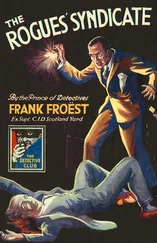'Were they residents?'
'Yes. A dozen or so greys stay on the west coast all year round – they're too old for the gruelling journey. When the herds arrive from the south, they make a big show of welcoming the old guard back into the fold. One of the two whales was an elderly grey that lives here. He definitely didn't want to hurt us – far from it. In fact, I think we owe those whales our lives.'
'Unbelievable. To think they protected you!'
'Tut, tut, Licia.' Anawak raised an eyebrow. 'You of all people projecting human intentions on a whale.'
'After what I saw three days ago I'm ready to believe anything.'
'I wouldn't say they actually protected us, but it seemed as though they kept the other whales at bay. They weren't keen on our attackers. All in all, we could reasonably infer that only migrants are affected. No matter which species we're dealing with, the residents appear harmless. They seem to know that the others are deranged.'
Delaware scratched her nose. 'It would fit. A large number of whales went missing in the middle of the Pacific on their way here from California. The aggressive orcas live in the middle of the ocean too.'
'Precisely. So whatever has caused the change in their behaviour, we'll find it – in the deep blue sea, miles away from anywhere.'
'The question is, what?'
'We'll work it out,' said John Ford, who had materialised beside them. He pulled up a chair and sat down. 'The sooner the better – before the politicians and their perpetual phone calls drive me nuts.'
'I NOTICED SOMETHING TOO,' said Delaware, as they were eating their dessert. 'I can see how the orcas might have enjoyed themselves, but it can't have been fun for the others.'
'What makes you say that?' asked Anawak.
'Well,' she said, through a mouthful of chocolate mousse, 'imagine how you'd feel if you kept running into something and trying to knock it over. Or flinging yourself on top of something with lots of hard edges and corners. The chances are, you'd hurt yourself.'
'She's right,' said Ford. 'Animals only hurt themselves for the survival of the species or to protect their young.' He removed his glasses and polished them. 'How about we let our imaginations run wild for a minute? What if the whole thing was a protest?'
'A protest against what?'
'Whaling.'
'Whales protesting against whaling?' exclaimed Delaware.
'Whalers have come under attack in the past,' said Ford, 'usually because they were hunting calves.'
Anawak shook his head. 'You can't seriously believe that.'
'It was just an idea.'
'Not a plausible one, though – it's not even proven that whales know what whaling's about.'
'You mean they don't know they're being hunted?' said Delaware. Crap!'
'I meant that they may not see a pattern,' Anawak retorted. 'Pilot whales always strand themselves on the same stretch of coastline. In the Faroe Islands whole herds are rounded up by fishermen and killed with metal gaffs. It's a bloodbath every time. Then there's Futo in Japan, where countless dolphins and porpoises are slaughtered each year. It's been going on for generations, so they must know what awaits them. But why go back for more?'
'It doesn't seem very smart,' agreed Ford. 'But we're still pumping greenhouse gases into the air and chopping down rainforests, even though we know we shouldn't. And that's not very clever either.'
Delaware frowned and scraped up the last of her chocolate mousse.
'It's true, though,' said Anawak.
'What?'
'Licia's point about the whales getting hurt when they launched themselves at the boats. I mean, if you decided to take out some humans, you'd find yourself a cosy niche with a good view, then point the gun and fire, making sure you didn't shoot yourself in the process.'
'Unless something affected your judgment.'
'Hypnosis?'
'Perhaps they were ill – or just confused. That's it! They're confused.'
'Or maybe they've been brainwashed.'
'Come on, guys, cut it out.'
They all fell silent, immersed in their thoughts. The background noise grew louder and snatches of conversation drifted over from neighbouring tables. The situation at sea still dominated the media and a strident voice was linking the attacks along the west coast to accidents in Asia. Some of the worst shipping disasters in decades had just occurred in the Malacca Strait and Japan. Everyone in the restaurant was speculating and hypothesising, their appetites undiminished.
'Suppose toxins are responsible,' said Anawak at last. 'PCBs and so on. What if something's driving them mad?'
'Mad with rage more likely.' Ford was fooling around again. 'They're up in arms about the Icelanders who want new whaling quotas, the Japanese who can't stop eating them, and the Norwegians who don't give a damn about the IWC. Christ, even the Makah want to hunt them again. Hey, there's our answer!' He grinned. 'They must have read it in the paper.'
'For someone who's head of a scientific think-tank,' said Anawak, 'you don't seem to be taking this seriously. You've got an academic reputation to keep up, remember.'
'The Makah?' echoed Delaware.
'The Makah are part of the Nuu-chah-nulth people,' said Ford. 'Indians from the west coast of Vancouver Island. They want to start whaling again. They've been campaigning for years for legal recognition.'
'No way! Are they crazy?'
'Your civilised outrage is all very commendable, Licia, but the Makah haven't hunted whales since 1928.' Anawak yawned. He could barely keep his eyes open. 'In any case, it wasn't them who pushed grey whales, blue whales and humpbacks to the brink of extinction. For the Makah it's a question of preserving their culture. They say that the art of traditional whaling will soon be forgotten.'
'They could always try shopping like everyone else.'
'I hope you're not spoiling Leon's noble plea for tolerance,' said Ford, refilling his glass.
Delaware stared at Anawak. Oh, no, he thought. He looked like an Indian, anyone could see that, but she was about to draw the wrong-conclusions. He could hear her question gather steam. He'd be forced to explain himself and he hated doing that. It only Ford hadn't mentioned the Makah…
He caught the other man's eye.
'Let's talk about it some other time,' Ford said hastily. Before Delaware could argue, he went on, 'The toxins theory is something we should talk about with Oliviera, Fenwick or Rod Palm, but I don't buy it. The pollution stems from oil spills and chlorinated hydrocarbons. We know what that leads to: damaged immune systems, infection and premature death – but not madness.'
'I thought all the orcas on the west coast were supposed to be dead in thirty years?' Delaware piped up.
'Thirty to a hundred and twenty, if we don't do something about it. But it's not just the chemicals. The orcas are being deprived of their main prey, so they either die of poisoning or they're forced to find new waters. And because they're hunting in areas they're not familiar with, they get caught in nets. The odds are stacked against them.'
'Actually, forget the toxins theory,' said Ford. 'If it were just the orcas, I'd say you were on to something – but when orcas and humpbacks join forces like that … I don't think so, Leon.'
Anawak thought for a moment. 'You know my stance on whales,' he said softly. 'I'm usually the last person to read intentions into animal behaviour or to talk up a creature's intelligence. But. . . don't you have the feeling they wanted to get rid of us?'
He'd expected vehement protests, but Delaware nodded. 'Yes. Except the residents.'
'Because the residents haven't gone wherever the others have been or experienced whatever it is that has changed them. Those whales that sank the freighter… We'll find the answer out to sea.'
Читать дальше












